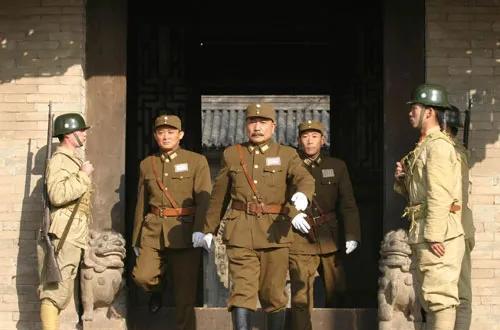Sun Chu was a contemporary of Yang Aiyuan at the Baoding Military Academy, nicknamed "Sun Nerve". To get this hun number, it stems from the fact that Sun Chu usually likes to show off, strong to not know, when the trick is renovated, flashy, so often give people a sense of trance, nervous confusion.
Yan Xishan said that he would put Banyuan in and close the door to beat the dogs, but Sun Junshi made a big cry for a fall, knowing that the big thing was bad. At that time, Shanxi was facing a two-sided Japanese attack, the northern front of Yan was the Mongolian Xinjiang Corps, and the Side of Pingxingguan was the Fifth Division, and the two parts of the Japanese army cooperated with each other and fought in coordination. Sun Chu said: "Yanbei, the main battlefield is also, and the ping-type pass is only a secondary battlefield, now put the Banyuan into the pass, isn't it right in the middle of the other side's plan to divide and attack?" ”

If it was the Northern Expedition, Lao Yan was fighting a hot war, and maybe he would still insist on his own opinion, but after many years of not holding the handle of the gun, his hand had long been born, and he was correspondingly more and more lacking in self-confidence.
What about in your opinion? Sun Chu's chest stood up: "According to my opinion, the Jin army has gathered no less than sixteen or seven regiments at Pingxingguan, which is enough to resist Banyuan, and at the same time, Lin Biao of the Eighth Route Army has copied behind the enemy's back, and it will certainly be able to stop it outside Pingxingguan at that time." What he meant was that The Flat Pass should be based on defense, rather than risking putting it in and beating him.
Thinking that the pocket array in Datong was not only not completed, but also lost the entire Northern Jin Dynasty, Lao Yan, who wanted to be "fierce", finally adopted Sun Chu's plan to stick to the Pingzhi Pass.
In fact, Sun Chu's analysis is far from the actual use of troops by the Japanese army: during the Battle of Datong, the main force of the Japanese army was indeed the Mongolian Xinjiang Corps, but in the Battle of Pingxingguan, it was mainly the Fifth Division regiment, supplemented by the Mongolian Xinjiang Corps.
Of course, the plan to stick to the flat type pass is not without a little merit, if it can really be held, and whether Lao Yan can finally hold the flat type pass depends not only on his subjective wishes, but also depends on how the opponent grasps it.
This time, Lao Yan's biggest opponent was undoubtedly the commander of the Fifth Division, Itagaki.
In the Japanese military, Itagaki has long been a thunderous figure. The so-called birds flew in a strong place, and the young soldiers were eager to ask for transfer to the Fifth Division, just to be able to become a staff officer under him.
Itagaki commanded the operations also has its own characteristics, he especially likes to talk about military affairs at the dinner party of the division headquarters, and whenever this time comes, he usually does not like to talk, he can always talk endlessly. So the dinner party turned into an informal staff meeting, with a group of staff officers smoking cigarettes and listening.
It was at these meetings of staff that Itagaki decided on an offensive strategy, that is, to command the Fifth Division to make a detour from Pingxingguan and make a key breakthrough from the Tuanchengkou on the west side of Pingxingguan.
Banyuan is familiar with the geography of Shanxi, and his battle strategy can be said to have captured the nose of the cow. The only thing that the Uighur general, who claimed to know a lot about China's political and military situation, did not expect that the Jin army stationed at the mouth of the regiment was not the Jin army that had collapsed in the previous battle, but the "foreign monks" - the Seventeenth Army reinforcing Shanxi, which the people of Shanxi called the "Southern Army".
Battle of Pingshiguan (2) serial, to be continued.......